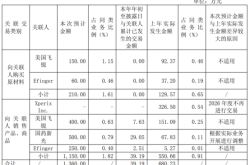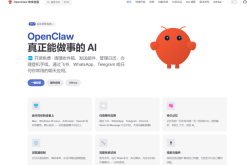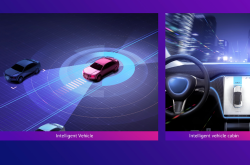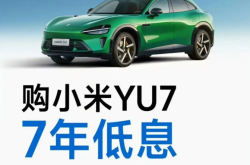Sales decline, layoffs initiated, is Volkswagen's downsizing a form of "self-rescue"?
![]() 11/07 2024
11/07 2024
![]() 450
450
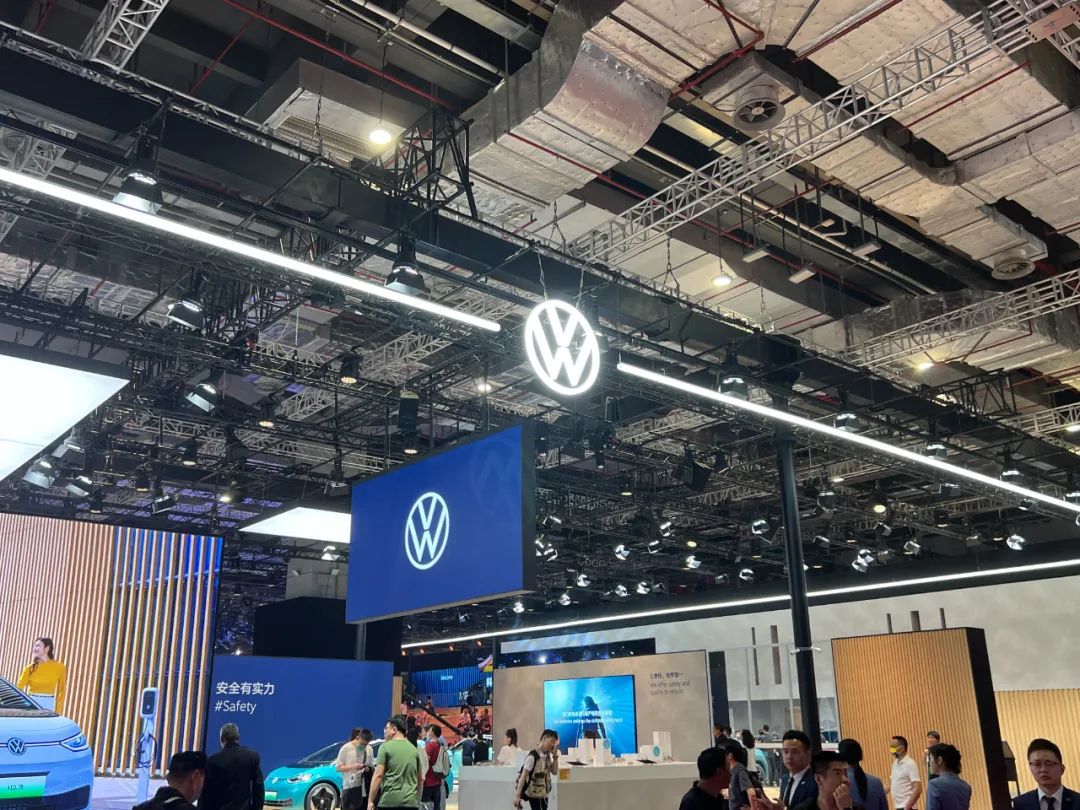
Image source: Dugou
Recently, the Volkswagen Group has been mired in controversies involving layoffs, salary reductions, and plant closures.
According to media reports, Herbert Diess, Chairman and CEO of Volkswagen Group China, responded to issues such as sales, cost reduction, and layoffs. He stated that 2024 and 2025 will be crucial phases for the group's transformation. Despite facing numerous challenges, Volkswagen is fully prepared. "We anticipated last year that aggressive pricing and fierce competition in electric vehicles would persist and decided to prioritize profitability over market share at any cost."
The financial report shows that in the first three quarters of this year, Volkswagen Group's total revenue was €237.279 billion, an increase of 0.9% year-on-year; post-tax profit was €8.917 billion, a decrease of 30.7% year-on-year. Simultaneously, Volkswagen Group's global sales also declined. In the first three quarters, Volkswagen Group delivered 6.5243 million vehicles globally, a year-on-year decrease of 2.8%.
By market, in the first three quarters, Volkswagen delivered 2.949 million vehicles to Europe/other markets, a year-on-year decrease of 0.1%; 698,900 vehicles to North America, an increase of 8.5%; 366,300 vehicles to South America, an increase of 12.1%; and 2.2646 million vehicles to the Asia-Pacific region, a decrease of 10.9%. Among them, deliveries in China decreased by 10.1% to 2.0557 million vehicles.
Stephan Wöllenstein, a member of Volkswagen Group's Sales Executive Committee, bluntly stated, "The competition in the Chinese market is particularly fierce, which is the main reason for the decline in our global deliveries.""As the "elder brother" among joint venture automakers, how can Volkswagen reverse its situation in China?
1
Electrification 'lagging' ●
In 1984, Volkswagen Group established its first joint venture in China, SAIC Volkswagen. Seven years later, its second joint venture in China, FAW-Volkswagen, was established."At that time, joint venture automakers were rapidly developing in China, and China quickly became an important market for Volkswagen. In 2006, China became Volkswagen's largest market globally. In 2019, Volkswagen's sales in the Chinese market reached a historic high of 4.23 million vehicles. According to data from the China Passenger Car Association, in that year, FAW-Volkswagen sold 2.0719 million retail vehicles, and SAIC Volkswagen sold 1.9681 million, ranking first and second in retail sales among passenger car manufacturers for the entire year, with market shares of 10% and 9.5%, respectively."However, since then, Volkswagen has been on a "downhill" trajectory in China. By 2023, Volkswagen Group's deliveries in China were 3.236 million vehicles. According to data from the China Passenger Car Association, in 2023, FAW-Volkswagen and SAIC Volkswagen sold 1.8466 million and 1.2314 million vehicles, respectively, ranking second and fifth in sales, with market shares of 8.5% and 5.7%, respectively."Volkswagen's sales transformation stems from its "lagging" new energy layout.In 2019, Volkswagen's fully electric ID.3 officially debuted in China. At that time, Volkswagen stated that by 2025, it would mass-produce 33 models born from the MEB platform globally, with nearly half of them coming from China; by 2025, it aimed to produce and sell over one million electric vehicles globally annually, with over half in China."In November 2020, the ID.4 and ID.6 series entered China, with SAIC Volkswagen and FAW-Volkswagen simultaneously commencing production and sales. SAIC Volkswagen is responsible for the ID.3, ID.4 X, and ID.6 X, while FAW-Volkswagen handles the ID.4 CROZZ, ID.6 CROZZ, and ID.7 VIZZION. All models are based on Volkswagen Group's MEB modular electric drive platform and have minimal differences in interiors; in terms of exterior design, FAW-Volkswagen's ID models lean towards a German style, while SAIC Volkswagen has made modifications to the original version to make it more Chinese."Whether it's SAIC Volkswagen or FAW-Volkswagen, their ID. series has repeatedly faced issues with infotainment systems, which have affected sales.This year, both SAIC Volkswagen and FAW-Volkswagen have taken a series of price reduction measures, but sales of the ID family in China have been unsatisfactory. In October of this year, SAIC Volkswagen stated that cumulative sales of the ID family have exceeded 100,000 vehicles since the beginning of the year; FAW-Volkswagen's ID.4 CROZZ, ID.6 CROZZ, and ID.7 VIZZION models combined have sold 39,900 vehicles."According to data from the China Passenger Car Association, in the new energy vehicle retail sales rankings for the first three quarters of this year, BYD sold 2.4666 million vehicles, ranking first; Geely sold 527,100 vehicles, ranking second; and Great Wall Motors ranked tenth with sales of 189,700 vehicles. Neither SAIC Volkswagen nor FAW-Volkswagen made the list. Apparently, in the domestic new energy market, Volkswagen, as a joint venture automaker, does not have an advantage."2
Accelerating Cooperation with Chinese Enterprises ●
As Volkswagen faces a downturn, China's electrification is taking the lead. According to monitoring data from the GII Research Institute, from January to September this year, new energy passenger vehicle deliveries in the Chinese market (excluding imports and exports) increased by 43.76% year-on-year, with independent brands contributing up to 86.95% of this growth. In terms of intelligence, from January to September, independent brand passenger vehicles equipped with standard connected cockpits and intelligent driving (L2 and above) delivered 4.1573 million vehicles, accounting for 64.73% of overall market deliveries (combined independent and joint venture), with independent brand new energy vehicles contributing 75.42% of this share."This is precisely why Volkswagen, unwilling to be "abandoned" by consumers, chose to further deepen its cooperation with Chinese enterprises.In July 2023, Volkswagen Group and XPeng Motors reached a technical framework agreement to jointly develop two electric vehicle models for the Volkswagen brand targeting the mid-size car market in China, expected to be launched in 2026. In December of the same year, Volkswagen Group completed the acquisition of a 4.99% stake in XPeng Motors."In March of this year, Volkswagen Group signed a joint development agreement with XPeng Motors on strategic technology cooperation for platforms and software. According to the agreement, the two parties will procure shared automotive and platform components through joint procurement plans. A month later, Volkswagen Group announced further progress in its cooperation with XPeng, jointly developing an electronic and electrical architecture—CEA, based on regional control and quasi-central computing."In July, the two parties announced that from 2026, Volkswagen brand's pure electric vehicle models produced in China will be equipped with the CEA electronic and electrical architecture, including models developed based on the new CMP platform and future MEB platform models planned for launch in China."While continuously deepening cooperation with XPeng Motors, Volkswagen is also intensifying other new energy layouts.In 2022, CARIAD, a software company under Volkswagen Group, established a subsidiary in China. In January 2022, Volkswagen Group announced that CARIAD would form a joint venture with Horizon Robotics and take a controlling stake. In December 2023, the joint venture Cooler Cheng was established to develop full-stack advanced driver assistance systems and autonomous driving solutions."In April 2023, Volkswagen Group announced that CARIAD would establish a joint venture with Thundersoft, a provider of intelligent operating system products and technologies. In September of the same year, the joint venture Yichuang Leixing was established, focusing on intelligent cockpits. In September 2023, CARIAD China acquired Shanghai Muchuan Industrial Design, integrating its design team into CARIAD China's UX&UI capability center "CARIATIVE," dedicated to user experience and interaction innovation."In terms of batteries, in December 2021, Guoxuan High-Tech completed a private placement of shares, increasing Volkswagen China's shareholding from 4.41% to 26.47%, making it the largest shareholder."3
Starting Cost Reduction and Efficiency Enhancement ●
Although Volkswagen has accelerated its electrification layout in China, it still started relatively slowly. Amid declining sales, Volkswagen has had to optimize its operations.In December 2023, Volkswagen Group and labor unions reached an agreement to set a cost reduction plan with a target amount of up to €10 billion (approximately RMB 78.2 billion) for the Volkswagen brand, covering accelerating development and production timelines, reducing employee costs, and implementing more efficient procurement strategies to boost profitability."In May of this year, Volkswagen Group proposed the project implementation target to all its subsidiaries: to achieve a 20% cost reduction over the next three years compared to 2023, including fixed costs and personnel costs.Following July, Volkswagen Group once again lowered its annual performance forecast in September, expecting annual vehicle deliveries of 9 million vehicles, lower than the previously expected growth of up to 3% to 9.24 million vehicles."While lowering its performance forecast, Volkswagen also initiated layoffs. In September of this year, Volkswagen Group announced plans to consider significant layoffs and close some German factories. Simultaneously, Volkswagen Group will terminate a 30-year-old employment protection agreement promising no layoffs until the end of 2029. After terminating the agreement, Volkswagen Group can initiate layoffs from mid-2025."In October, the Volkswagen Group Works Council announced at an employee information session held in Wolfsburg, Lower Saxony, on October 28, that layoffs, salary reductions, and plant closures would occur. Volkswagen plans to close at least three domestic factories in Germany and lay off tens of thousands of employees. The Works Council also stated that Volkswagen hopes to reduce the monthly salaries of all employees by 10%. Additionally, there will be two rounds of salary freezes, with no salary increases in 2025 and 2026."Furthermore, there are reports that Herbert Diess, Chairman and CEO of Volkswagen Group China, is leading a phased layoff process, expecting to reduce hundreds of local employees at the group level, including the Audi brand."Recent reports also indicate that layoffs at Volkswagen China are still ongoing, primarily affecting the imported vehicle business, with nearly 100 employees affected, involving the subsidiary Volkswagen Group China Import & Sales Co., Ltd. (VGIC). Employees facing layoffs are given two options: relocation from Beijing to Hefei or direct layoff with a maximum compensation of N+6."It seems that Volkswagen's joint venture, SAIC Volkswagen, has also entered a phase of cost reduction and efficiency enhancement.Media reports claim that SAIC Volkswagen plans to close its factory in Nanjing, Jiangsu Province, next year. This factory, primarily responsible for producing multiple models under the Passat and Skoda brands, has an annual production capacity of 360,000 vehicles. SAIC Volkswagen plans to relocate some workers from the Nanjing factory to another factory in Yizheng, Jiangsu, which currently focuses on producing the Lavida sedan."However, SAIC Volkswagen responded that all production activities at the Nanjing factory are operating normally. Currently, the production capacity for the entire Passat series is sufficient, and production and sales are proceeding as usual. Based on market demand and product planning, SAIC Volkswagen has many new products to launch in the future, including new fuel and new energy products. Corresponding planning for production bases will also be made based on the new product spectrum."In fact, not only Volkswagen but other joint venture brands have also experienced a "decline" in China.According to data from the China Passenger Car Association, in the first three quarters of this year, except for independent brands, whose retail sales increased by 18.4% year-on-year to 9.1598 million vehicles, sales of other vehicle lines declined. Among them, German brands sold 2.8775 million vehicles, a year-on-year decrease of 10%; French brands sold 50,900 vehicles, a year-on-year decrease of 4.5%; Korean brands sold 182,400 vehicles, a year-on-year decrease of 23%; American brands sold 984,400 vehicles, a year-on-year decrease of 22.1%; and Japanese brands sold 2.1934 million vehicles, a year-on-year decrease of 16%."Obviously, under the impact of rapidly developing independent brands, joint venture brands inevitably encounter setbacks in the Chinese market. Amid the wave of new energy vehicles, choosing to cooperate with Chinese automakers and industrial chains has become the choice for joint venture brands, including Volkswagen, to seek development."Author | Wei HeSource | CarVisibilityDisclaimerThis account is dedicated to sharing more knowledge about the automotive industry for readers' reference and exchange and does not constitute investment advice for any individual or institution.Please do not make investment decisions based solely on the information in the articles of this public account. If any direct or indirect losses are incurred due to improper use of relevant information, you must bear full responsibility yourself.This article is an original article by CarVisibility, and the copyright belongs to CarVisibility. For reprinting, please contact us for authorization.

